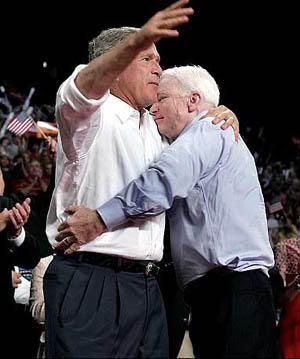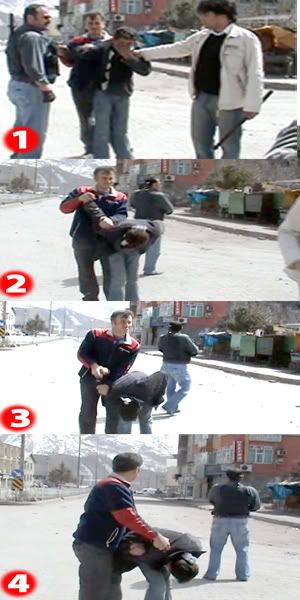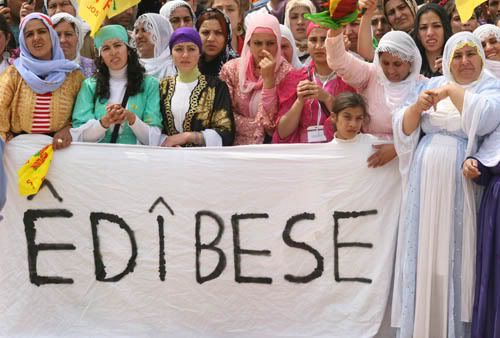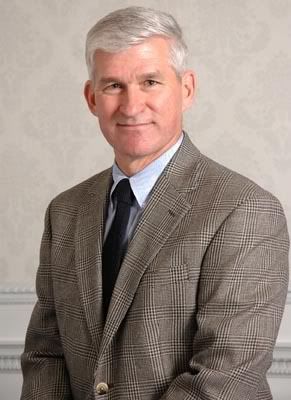by Gordon Taylor | 3/31/2008 01:23:00 AM
Mehmet Sahin, writing in French at the Belgian website Info-Turk.be, issues an "Urgent Appeal for Help for Kurdish Children Tortured and Imprisoned" after the recent violence. He specifically mentions, of course, the 15-year-old Cuneyt Ertus, about whom I have previously written. He says that he has been in contact with Cuneyt's father. According to Mr. Ertus, his son is still in jail, without medical care, and without access to a lawyer. Another youth has lost both eyes because of a severe skull fracture. (Full appeal posted overleaf, in French, with emphasis on important passages.)
Here is the appeal. The pertinent quote is thus:
Here, then, is the full text:
This then is reality, and at last it is beginning to sink in. Turkey's bid to join the EU is as good as dead. Today the policemen strut and brag and break the arms of young boys. Anyone who speaks the truth about the Army, the police, or a long-dead leader named Ataturk, soon finds himself in court or gunned down in the street. Tomorrow, 31 March 2008, the Constitutional Court of Turkey will announce whether it intends to open a case that would lead to closure of the AKP, Turkey's duly-elected governing party. Writing in the Turkish paper Today's Zaman, Omer Taspinar of the Brookings Institute lays it all out:
Here is the appeal. The pertinent quote is thus:
The members of the Special Units (police) proclaim: "We break the arms of those who throw stones." The expression is that of Tansu Ciller, the ex-Prime Minister of Turkey (in the '90s): "Those hands that are raised against Turkey we will break; the tongue that speaks against us we will cut out."
Here, then, is the full text:
Appel urgent pour l'aide aux enfants kurdes torturés et emprisonnnés
La direction de la Communauté Kurde de la Bavière vient de lancer un appel urgent après la violence de l'Etat envers le peuple kurde lors des célébrations de Newroz dans le Kurdistan de Turquie:
A l´occasion de la fête de Newroz en Turquie, des nombreux enfants kurdes ont été arrêtés, maltraités, enlevés et torturés brutalement par des membres de la police et des unités turques d'opération militaire et speciale. On leur refuse un traitement medical et comme il semble aussi la défense par un avocat.
Les incidents ont été en partie filmés. Sur un video filmé par les unites d´operation speciales, http://www.youtube.com/watch?v=4ENIwySnfNM, vous pouvez voir comment un membre d´une unité speciale en civil fracture le bras à Cuneyit Ertus qui a 15 ans.
Les membres des unites speciales crient : "Nous cassons les bras à ceux qui jettent des pierres." L'idiome est de l´ancien premier ministre turc Tansu Ciller: Les mains qui se levent contre la Turquie, nous les casseront, la langue, qui parle contre nous, nous la couperons.
Depuis l´incident survenu le 23.03.2008 à Hakkari/Yüksekova, Cuneyit Ertus est toujours emprisonné sans avoir recu de traitement medical. Personne n´a pû le voir jusqu´ici.
D´autres enfants subissent également le même sort. Une information vient d´arriver de l´association des avocats de Hakkari. Un enfant a perdu ses yeux et a subi une fracture de crâne. Il est actuellement opéré à Ankara. Nous attendons d´autres informations demain.
Il faut aider d´urgence ces enfants emprisonnés.
Veuillez transmettre l'information à vos distributeurs et nous communiquer rapidement ce qui a été entrepris.
Vous pouvez toujours nous contacter aux addresses ci-dessus.
Nous-mêmes dépendons pour le moment des publications parues dans l'Internet et des médias kurdes travaillant à l'étranger ainsi que de l´association des avocats et de IHD, organisation des droits de l´homme. Les informations sur Cuneyit Ertus sont de Roj TV, une station de télévision kurde, qui a recu l'information du père de l'enfant.
Vidéo montrant ce qui est arrive à Cüneyit Ertus :
http://www.youtube.com/watch?v=4ENIwySnfNM
http://www.youtube.com/watch?v=b2JA7yy56Eg&feature=related
D´autres liens montrant la situation générale et la facon dont des enfants kurdes sont maltraités en plein rue:
http://www.youtube.com/watch?v=pYvE7bm2cl0&feature=related
http://www.youtube.com/watch?v=PikJpE0OH2U&feature=related
http://www.youtube.com/watch?feature=related&v=ML_TnmyxCrc
http://www.youtube.com/watch?v=4SxHbFs0aao&feature=related
http://www.youtube.com/watch?v=b2JA7yy56Eg&feature=related
Liens pour voir les rapports des droit de l'homme établi par l`IHD (organisation kurde des droits de l´homme en Turquie) en anglais: [Reports in English:]
http://www.ihd.org.tr/report/summary/2007.htm
http://www.ihd.org.tr/report/summary/January-June2007.html
http://www.ihd.org.tr/report/summary/1999_2007_comparative_balance_sheet.htm
http://www.ihd.org.tr/report/summary/2006.htm
Contact: mehmetsahin@t-online.de
This then is reality, and at last it is beginning to sink in. Turkey's bid to join the EU is as good as dead. Today the policemen strut and brag and break the arms of young boys. Anyone who speaks the truth about the Army, the police, or a long-dead leader named Ataturk, soon finds himself in court or gunned down in the street. Tomorrow, 31 March 2008, the Constitutional Court of Turkey will announce whether it intends to open a case that would lead to closure of the AKP, Turkey's duly-elected governing party. Writing in the Turkish paper Today's Zaman, Omer Taspinar of the Brookings Institute lays it all out:
Turkey is Not Ready for Europe
If you are sitting in Brussels and looking at what is going on in Turkey, it is almost unavoidable that you will reach a sad conclusion: Turkey is simply not mature enough as a democracy to qualify for EU membership. In the past, I used to think that the main challenge for Turkey was to become a "liberal" democracy. If only Ankara could shed some of its illiberal tendencies, I believed, it would prove its political credentials as a first rate democracy and deserve EU membership. Yet now I can't help but realize that the challenge for Turkish democracy is much more daunting than I thought. The issue is no longer whether Turkey can become more liberal. It is rather whether Turkey can maintain a semblance of democracy.
None of the countries in Europe's periphery have the kind of identity problems that Turkey has. Yes, it is absolutely correct to argue that if countries such as Bulgaria and Romania managed to become members of the European Union, so should Turkey. But such arguments focus on the economy and the level of social development. Turkey is certainly economically more advanced than some of the new members of the EU. But Turkey's challenge is not the economy. The real challenge for Turkey's EU membership is political. The most basic prerequisite for democratic rule is civilian supremacy over the military. No one can dispute who is in charge of Bulgarian or Romanian politics. It is the civilian government, not the Bulgarian military. The same goes for Romania. But in Turkey the answer to the question of who is in charge is much more complex. Is the civilian government really in charge of Turkey? How can we argue that it truly is, if despite having won an overwhelming electoral victory a few months ago it now faces a real risk of being shut down by the judiciary? How can Turkey prove to Europe that it is a first class democracy if the civilian government cannot be sure if it can survive this political onslaught?
Samuel Huntington called Turkey a "torn" country in his book on the clash of civilizations. Unfortunately, he was right. Turkey's identity problems are so deep and so existentialist that they constantly paralyze the political dynamics of the country. A harmonious balance between Islam, secularism and Western identity and democracy appears increasingly elusive in Turkey. To the contrary, Turkey is rapidly emerging as a country where political conflicts over Muslim and secular identity jeopardize the country's chances of staying on a Western and democratic path. We are far removed from the days when it was fashionable in Western circles to argue that Turkey was the perfect case proving the fallacy of the clash of civilizations. Instead Turkey is now a perfect case of how a country's own paradox can lead to a domestic clash of civilizations. If the current dynamics of polarization in Turkey culminate with a judicial coup against the Justice and Development Party (AKP), it will simply be impossible to argue that Turkey is a Western country and a European democracy. In other words, the EU would legitimately be able to argue that it is impossible to continue accession negotiations with a country where the civilian government is toppled by non-democratic forces. Simply put, the closure of the AKP would be the end of Turkey's EU journey.
Turkey had one major factor going in its favor during these difficult decades: the Cold War. The bipolar design of the Cold War divided the world into Eastern and Western blocs, and within this division Turkey clearly belonged to the West. As a NATO country that shared borders with the Soviet Union and tied down some 24 Russian divisions, Ankara's Western credentials went undisputed. Thorny questions concerning democratic standards, military interventions, human rights and a Muslim identity were therefore largely set aside.
This somewhat uncomplicated Western image of Turkey lasted as long as the Cold War did. To the dismay of Ankara, the Turkish bid for EU membership came under increasingly critical democratic scrutiny after the demise of the Soviet Union. There are still some people in Turkey who believe Europe should embrace Turkey despite all its political and democratic deficits, simply because of the country's geo-strategic importance as an energy corridor or a country that borders the Middle East. Such circles fail to understand that Europe is a club of liberal democracies. There are also those in Turkey who believe that Europe would never let Turkey in because of Islamophobia.
Unless Turkey becomes a liberal democracy, we will simply never know whether Europe is serious about Turkey or not. It would be very easy to adopt a narrative of victimization on grounds that Europe will always say "no" to Turkey because of its Muslim identity. But as long as Turkey gives the EU an opportunity to say "no" for political reasons, the question of Turkey's Muslim identity will remain irrelevant.
Today's Zaman 31.03.2008
Labels: Gordon Taylor









 Since Barack Obama's
Since Barack Obama's  In her short story "The Ones Who Walk Away from Omelas," Ursula K. LeGuin writes of a fictional utopia whose perfection is made possible by a terrible secret: the imprisonment of a child in the most horrifying conditions imaginable. When the residents of Omelas learn of this devil’s bargain, they face a stark choice: accept a lifetime of guilt-ridden pleasure, or leave the city, never to return. Some choose to stay in Omelas, trading their moral compasses for personal happiness. Those with courage are the ones who walk away.
In her short story "The Ones Who Walk Away from Omelas," Ursula K. LeGuin writes of a fictional utopia whose perfection is made possible by a terrible secret: the imprisonment of a child in the most horrifying conditions imaginable. When the residents of Omelas learn of this devil’s bargain, they face a stark choice: accept a lifetime of guilt-ridden pleasure, or leave the city, never to return. Some choose to stay in Omelas, trading their moral compasses for personal happiness. Those with courage are the ones who walk away.